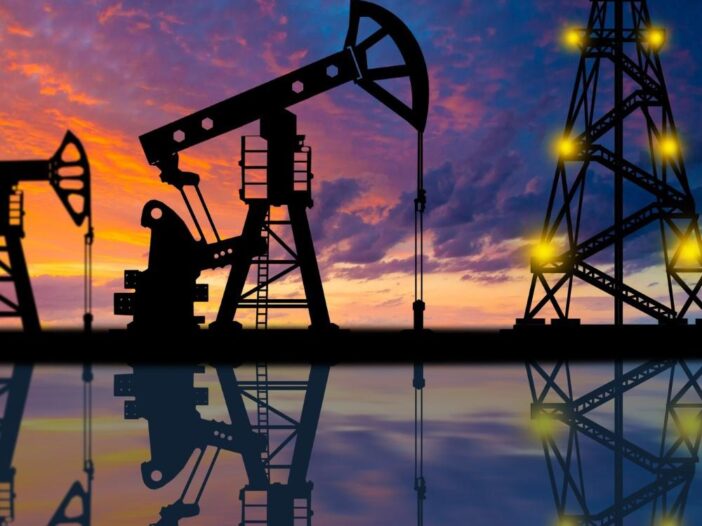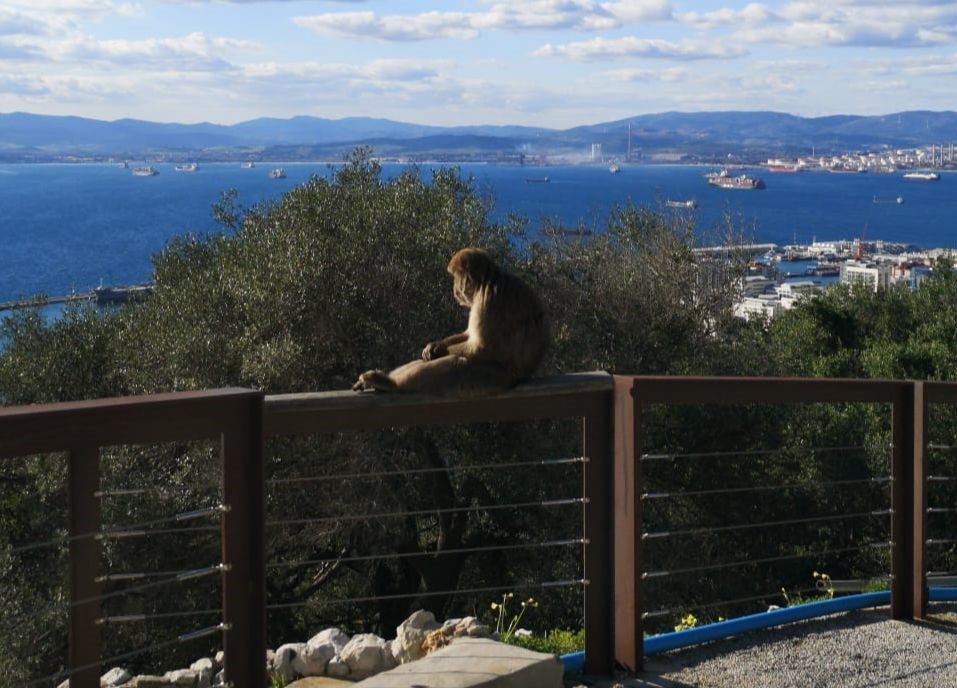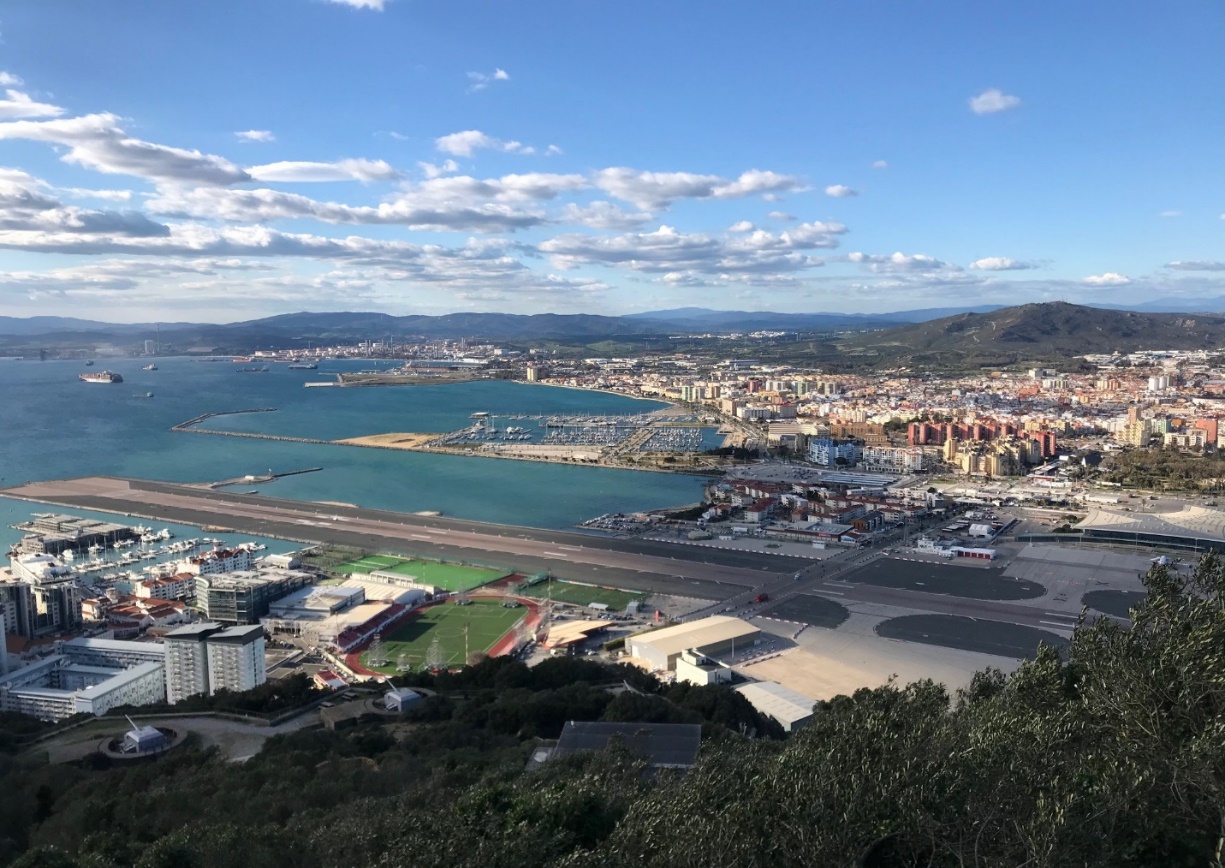In today’s Money Morning…Europe’s drums of war are beating again…the other main concern here is natural gas…the conflict will accelerate Europe’s energy transition…and more…
Hello from southern Spain!
This week I spent some time outside of the country visiting Gibraltar.
The ‘rock’, also known as Gib, is a British territory located south of Spain.
The tiny 6.7sqkm stretch of land is home to around 33,000 people and about 200 monkeys…the only wild monkeys in Europe.
In fact, here is a picture I snapped of one admiring the scenery from the top of the rock:
|
|
| Source: Selva Freigedo |
There are no natural resources in Gibraltar. Just one huge rock, a small city, and the coastline.
Oh yes, there’s also an airport — a must-visit if you are an adrenaline junkie. It’s rated one of the most dangerous in the world.
Here is a snap of the runway, which, as you can see, is quite short. That’s why it slopes upwards, to help the plane pull up before the runway drops into the sea.
|
|
| Source: Selva Freigedo |
If you look closely, you’ll notice the runway also intersects Gibraltar’s busiest avenue, connecting the border crossing from Spain into the town.
Every time a plane lands or takes off, which happens several times a day, the road needs to be closed off.
The rock has been under British rule since England invaded Gibraltar in 1704. In 1713, Spain gave it to Britain in perpetuity under the Treaty of Utrecht.
But Spain has never been happy with this arrangement.
For centuries, this tiny stretch of land has been the cause of dispute between Spain and England. After all, Gibraltar’s location is incredibly strategic…right at the entrance of the Mediterranean.
Gibraltar faces one of the busiest shipping lanes in the world, the Strait of Gibraltar.
Around 110,000 ships pass through the straight per year — half of the world’s trade, and a third of its oil and gas.
In fact, as I stood at the rock watching ships pass by, I couldn’t help but wonder how many were Russian vessels that had been denied port entry because of sanctions.
Europe’s drums of war are beating again
On 24 February, Russian President Vladimir Putin invaded Ukraine.
The conflict has brought a lot of suffering to Ukraine. But it’s also caused the prices of some commodities to go wild, in particular energy.
Today, oil prices jumped after President Biden announced it was banning all imports of Russian oil and gas in retaliation for Ukraine. At the time of writing, Brent crude oil is up close to 5% at US$129 a barrel.
While the US doesn’t import that much Russian oil, Europe does. According to Eurostat, in 2019, 27% of Europe’s oil imports came from Russia.
Oil prices could stay high for a while with OPEC not looking like they’ll be increasing oil production any time soon.
But the other main concern here is natural gas.
In 2021, Europe imported 155 billion cubic meters of natural gas from Russia, which makes up 45% of its gas imports.
On Monday, Russia threatened to retaliate to Western sanctions by stopping gas flowing through Nord Stream 1 into Europe.
European natural gas prices responded by jumping up 33% to €285 per megawatt hour, according to Refinitiv.
The concern is that we could be on the verge of a 1970s style energy crisis. As bad as all this is, it’s made one thing clear…
The conflict will accelerate Europe’s energy transition.
As energy is becoming a matter of national security, Europe is rethinking its energy supply chains.
On Tuesday, the European Commission released a plan to reduce Russian gas imports by two-thirds within a year and be completely independent of Russian gas imports by the end of the decade.
REPowerEU, as the plan is called, will look at importing more liquified natural gas from new suppliers. But will also look at boosting renewable energy and cutting demand by increasing energy efficiency.
As Executive Vice-President for the European Green Deal Frans Timmermans put it:
‘It is time we tackle our vulnerabilities and rapidly become more independent in our energy choices. Let’s dash into renewable energy at lightning speed. Renewables are a cheap, clean, and potentially endless source of energy and instead of funding the fossil fuel industry elsewhere, they create jobs here. Putin’s war in Ukraine demonstrates the urgency of accelerating our clean energy transition.’
The Ukraine conflict is surely looking like it will speed up Europe’s transition to renewable energy. Renewable energy offers cheaper energy and more energy independence.
Until next week,
 |
Selva Freigedo,
For Money Morning
Selva is also the Editor of New Energy Investor, a newsletter that looks for opportunities in the energy transition. For information on how to subscribe, click here.



